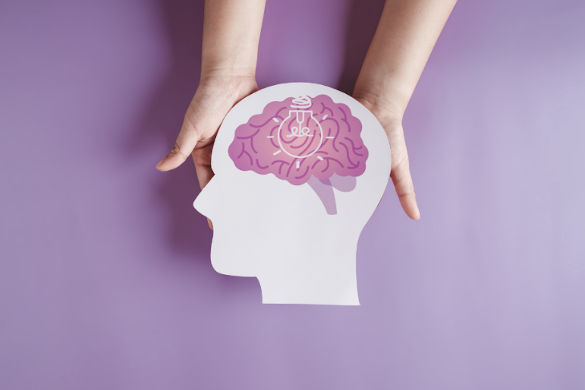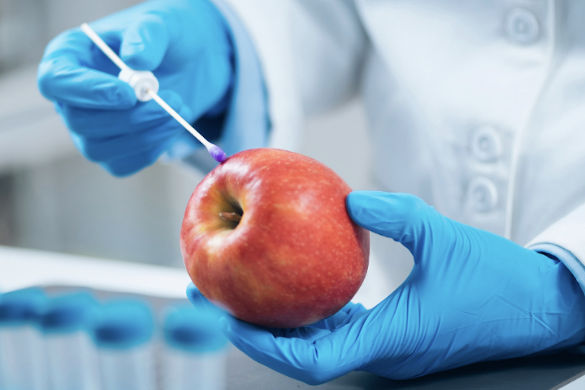.
Welcome to my blog!
.
Nourishing Your Way to Migraine Management
By Hescott Nutrition Services | posted in June 2023 | Understanding Migraines, Common Signs/Symptoms, Triggers, Food Additives, Food Substances, Other Diet-Related Factors, Common Food Triggers, Lifestyle Practices to Reduce Migraines, Supplements.
Did you know that migraines affect millions of Americans, with women being especially susceptible? If you've ever experienced the throbbing pain, debilitating symptoms, and disrupted daily life that come with migraines, you're not alone. Migraines rank as the seventh leading cause of years lived with disability worldwide, highlighting the urgent need for effective management strategies.

But what if we told you that relief might be closer than you think? Recent studies have shed light on the powerful role nutrition can play in managing migraines, offering a glimmer of hope to those seeking a natural approach to alleviate their suffering.
Join us on a journey into the fascinating realm of nutrition management for migraines. Discover the latest insights, evidence-based strategies, and tantalizing tips to unlock a life with fewer migraines. It's time to regain control and embark on a path towards a brighter, headache-free future!
Understanding Migraines:
Migraines are headache disorders with recurrent, unilateral attacks of moderate to severe pain intensity and concurrent photophobia (light sensitivity), phonophobia (loud sound sensitivity), and nausea. Classic migraine symptoms include nausea, vomiting, vision or hearing disturbances, and extreme sensitivity to light and sound.

Common signs and symptoms:
- Constipation
- Mood Swings
- Food cravings
- Neck pain, or stiffness
- Increased thirst and urination
- Frequent yawning
- Feeling lethargic
- Sensitivity to light, smells, and sounds
- Throbbing (head/neck)
- Nausea
- Vomiting
- Auras (e.g. sensory disturbances like hearing noises, noise sensitivity, flashing lights, zigzag patterns, or tracers)
Triggers:
Diet and nutrition can impact migraines by affecting nerves, blood vessels, and chemicals in the brain. Certain foods contain natural or artificial chemicals that can worsen the frequency and intensity of migraine attacks. These substances may also contribute to the release of inflammatory substances. Understanding these connections can help manage migraines through dietary choices.

Examples of endogenous chemicals are the amines:
- Histamine
- Octopamine
- Phenylethylamine
- Tyramine (naturally found in aged cheese; aged, canned, cured, or processed meats; beans (e.g. fava beans, broad beans; pickles; canned soups)
Food additives associated with migraines includes:
- Nitrates are often found in processed meats
- Monosodium glutamate is also known as MSG, which is found in meat tenderizer, soy sauce, Asian foods, and a variety of packaged foods

Other food substances often considered to be triggers include tannins and phenols found in:
- Apple skins
- Bananas
- Black tea
- Red wine sulfites
Other diet-related factors that may be associated with increased expression of migraine symptoms include:
- Dehydration
- Fasting
- Skipping meals
- Alcohol use
- Caffeine withdrawal
Common food triggers:
- Aged cheeses (e.g. blue cheese, cheddar, feta, gorgonzola, parmesan, swiss)
- Alcohol, especially wine
- Aspartame
- Caffeine
- Canned soups
- Canned, cured, or processed meats
- Certain beans (e.g. fava, broad, garbanzo, lima, pinto)
- Chocolate
- Citrus
- Histamine-releasing foods: bananas, strawberries, raspberries, oranges, and grapefruit
- MSG
- Nitrites
- Nuts
- Olives
- Onions
- Overripe avocados, tomatoes, and bananas
- Pickled foods
- Raisins
- Salty foods
- Smoked fish and cured meats
- Soy sauce
- Sulfites
- Yeast extract (not the same as nutritional yeast)

Lifestyle Practices to Reduce Migraines
- Get adequate, uninterrupted sleep along with a consistent sleep-wake cycle
- Engage in regular mindfulness and meditation practices
- Engage in practices to reduce or manage stress
- Limit stimuli such as strong smells, loud noises, or flashing lights
- Optimize and support gut health

Supplements
- Magnesium (Mg): Studies have illustrated that a magnesium deficiency may play a role in migraines
- coenzyme Q10 (ubidecarenone): CoQ10 has been shown to reduce migraine frequency
- Riboflavin (B2): Riboflavin supplementation has been shown to prevent migraines
It is important to check with your healthcare professionals before taking any supplements.
Conclusion
In conclusion, understanding the impact of nutrition on migraines opens up a world of possibilities for managing and reducing the frequency of these debilitating headaches. By recognizing the potential triggers and making conscious dietary choices, individuals can take control of their migraine journey. With the right knowledge, evidence-based strategies, and a mindful approach to nutrition, it's possible to unlock a brighter, headache-free future. Remember to consult with your healthcare professionals for personalized guidance and explore the power of nutrition in nourishing your way to effective migraine management. Together, let's embrace the potential of a balanced and migraine-friendly diet, paving the way for improved well-being and a life with fewer migraines.
We customize meal plans for specific dietary needs.
Contact us via email: info@hescottwellness.com or by calling 347-915-3738.
